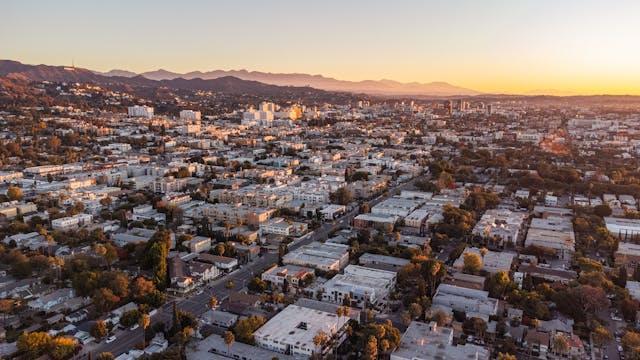Two Filipino-American families share their experiences with PFL and how the program has benefitted them
There are four countries that don’t mandate federal paid family leave: Swaziland, Lesotho, Papua New Guinea and the United States of America.
U.S. lawmakers in Washington have received backlash for their inability to have established a federal paid family leave law, which would require all employers to grant paid time off work to care for a newborn baby or a seriously sick family member. Although it’s the only core country without it, some states have taken up the issue on their own.
In 2002, California became the first state to put into law the Paid Family Leave (PFL) insurance program, which extended unemployment disability compensation to include people who take time off to care for a very ill family member or a newly born child.
California’s PFL program grants up to six weeks of partial income replacement benefits to families looking to bond with a new child, whether that be by birth, adoption or foster care placement. The program also provides benefits to individuals who need to care for a seriously ill child, parent, parent-in-law, grandparent, grandchild, sibling spouse or registered domestic partner.
The program is funded through California State Disability Insurance (CASDI) tax withholdings, and its benefits cover 60 to 70 percent of the applicant’s salary. Weekly benefits depend on the applicant’s salary, and can range from a minimum of $50 to a maximum of $1,216.
More than 18 million California workers so far have benefited from California’s PFL program, according to the state’s Employment Development Department (EDD).
Filipino-American financial analyst Eric Angeles found that without the PFL program, he and his husband would have been in a financial rut in 2016 after Angeles’ mother, Gloria, got seriously injured in the couple’s San Jose home.
His mother, 76, lives with the couple and fractured her knee, leaving her seriously injured and in need of long-term care and assistance. When figuring out the next steps, a friend notified Angeles of the PFL program.
“We didn’t even know anything about it,” Angeles shared with the Asian Journal in a recent phone interview. “But once we applied and were approved, we both breathed a sigh of relief because, before that, we didn’t know what we were going to do. It was stressing us both out.”
Angeles was able to get five weeks paid leave, which was “really, really helpful,” he said, adding that they didn’t think that the family would “be able to keep afloat if I hadn’t gotten that paid leave.”
Calling the program “a blessing,” Angeles remarked that PFL should “definitely” be available in more states; currently, California, New Jersey, Rhode Island and New York are the only states that have their own paid family leave laws.
“I felt like we were so lucky that we live in a state that has it, but I can’t imagine what it’s like for people like us who live in places where that’s not available. We were really lucky, but some people may not be so lucky,” Angeles asserted. “You should be able to take time off for a sick relative, to take care of a newborn baby or something like that and not be worried about money. These things happen and it’s not our fault, so we shouldn’t have to carry the burden of not having enough money just because you needed to take time off to, really, be a supportive, caring relative.”
Although PFL has a broad definition, most associate the issue with paid parental leave, which is paid leave to mothers and/or fathers of new children.
Culver City resident Angela Steel, who is half-Filipina, gave birth to a daughter, Ronan, in November 2017. It was the “greatest day” of both her and her husband, Greg’s, lives, but the celebration was cut short after they realized they both wanted to take time off of work to bond with their daughter.
“We didn’t think we could do that because we didn’t think we could afford to both take unpaid time off,” the 32-year-old new mother shared with the Asian Journal. “It was important to us because we both really value family bonding, in general, and thought it was essential for [the both of us] to be present.”
Angela Steel shared that in 1985 when she was born, paid parental leave wasn’t available so her mother didn’t get the chance to bond with her. Instead, her mother took a few unpaid days off and went back to work less than a week after she gave birth.
“My mom had to work right away because she couldn’t afford to take a month off or anything like that,” she said. “Struggling to make money was already an existing stressor for my mom, so she ultimately chose to go back to work right away and leave me with my lola (grandmother).”
Fast forward to 2017, the Steels applied for the program shortly after their daughter was born; Angela Steel was given five weeks of paid leave while her husband was given four. Greg Steel said that the PFL program was “immensely helpful” to the family.
Mirroring Angeles’ sentiments on the program, the Steels believe that PFL should be available to all families and that they felt extremely lucky to live in a state that offers it.
“I think if more people knew about this program and knew of what kind of benefits it can bring them, 100 percent of those people would take advantage of that,” Greg Steel said. “I can only speak from our experience, but I like to think it’s the same for a lot of new parents: it gave us the opportunity to for us to meet a really important goal and responsibility for us as a family while not having to worry about money.”
His wife echoed his thoughts, adding, “I don’t know what we would’ve been able to do if we lived somewhere else that didn’t have this program. It really did give us peace of mind during this important stage in our lives.”
How to apply for PFL
In order to file a claim for PFL, applicants must meet the eligibility requirements, which are available on the EDD website, listed below. You must:
• Be currently employed or actively looking for employment
• Be unable to effectively work due to the need to provide care to a family member or bond with a new child
• Have lost wages from caring for a family member or bonding with a new child
• Have earned at least $300 from CASDI withholdings
• Complete and submit claim no earlier than the first day your family leave period begins but no later than 41 days after your leave period begins
• Provide professionally verified proof of care (medical certificate, birth certificate, etc.)
Employers will be notified of the submitted PFL claim, but the medical information will remain confidential and not be shared with employers.
After the claim has been filed and you have submitted all the required documentation, the EDD will process the claim, which generally takes around 14 days; claims filed through SDI online (http://www.edd.ca.gov/Disability/SDI_Online.htm). Claims filed online generally take less time process than those filed by mail.
If you are found eligible for benefits, a payment notification will be sent as well as a California EDD Debit Card, to which authorized benefit payments will be deposited.
To learn more about California’s PFL program, visit http://www.edd.ca.gov/Disability/Paid_Family_Leave.htm. n






